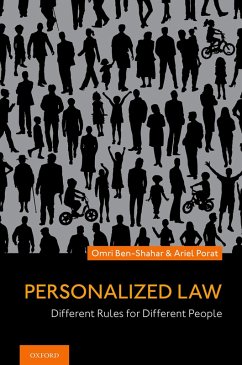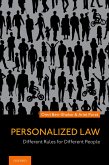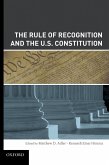We live in a world of one-size-fits-all law. People are different, but the laws that govern them are uniform. ?Personalized Law?---rules that vary person by person---will change that. Here is a vision of a brave new world, where each person is bound by their own personally-tailored law. ?Reasonable person? standards would be replaced by a multitude of personalized commands, each individual with their own ?reasonable you? rule. Skilled doctors would be held to higher standards of care, the most vulnerable consumers and employees would receive stronger protections, age restrictions for driving or for the consumption of alcohol would vary according the recklessness risk that each person poses, and borrowers would be entitled to personalized loan disclosures tailored to their unique needs and delivered in a format fitting their mental capacity. The data and algorithms to administer personalize law are at our doorstep, and embryos of this regime are sprouting. Should we welcome this transformation of the law? Does personalized law harbor a utopic promise, or would it produce alienation, demoralization, and discrimination? This book is the first to explore personalized law, offering a vision of law and robotics that delegates to machines those tasks humans are least able to perform well. It inquires how personalized law can be designed to deliver precision and justice and what pitfalls the regime would have to prudently avoid. In this book, Omri Ben-Shahar and Ariel Porat not only present this concept in a clear, easily accessible way, but they offer specific examples of how personalized law may be implemented across a variety of real-life applications.
Dieser Download kann aus rechtlichen Gründen nur mit Rechnungsadresse in A, B, BG, CY, CZ, D, DK, EW, E, FIN, F, GR, HR, H, IRL, I, LT, L, LR, M, NL, PL, P, R, S, SLO, SK ausgeliefert werden.









